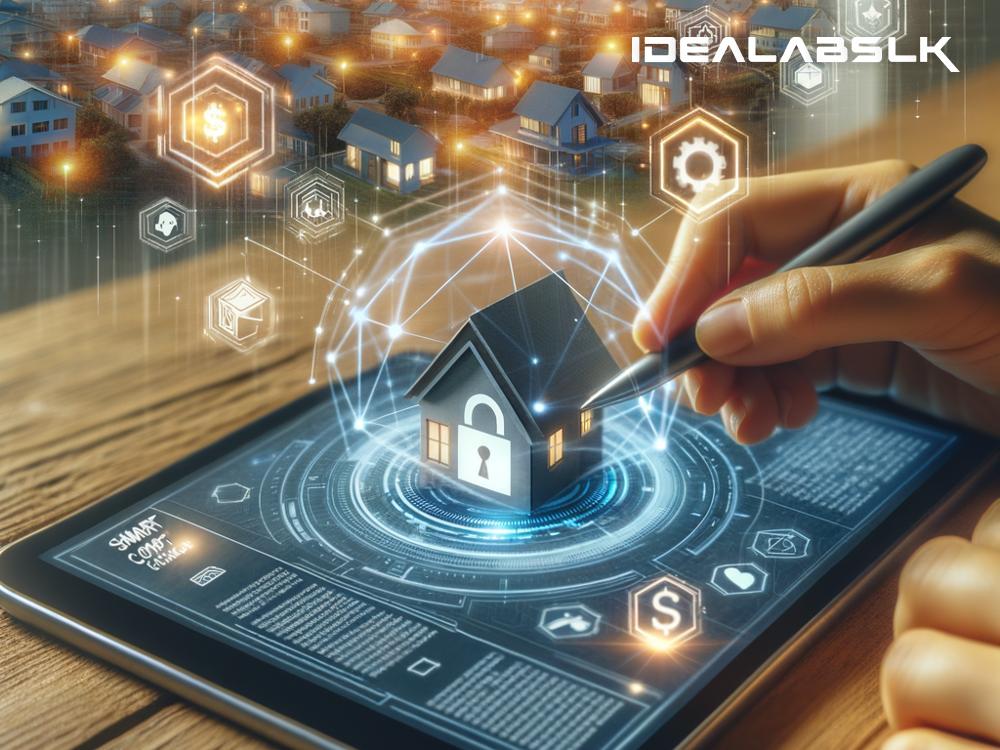Unlocking the Future: How Blockchain Is Revolutionizing Real Estate Contracts
In our rapidly evolving digital world, the real estate sector is on the brink of a significant transformation, thanks to blockchain technology. This innovation, best known for powering cryptocurrencies like Bitcoin, is now making waves in real estate. It's transforming how we handle contracts, making the process more efficient, transparent, and secure. So, what makes blockchain so revolutionary for real estate contracts, and how does it promise to reshape the landscape of property transactions?
The Basics of Blockchain
At its core, blockchain is a type of database that records information in a way that makes it nearly impossible to hack or cheat the system. Think of it as a digital ledger that is decentralized, meaning it's not controlled by any one entity but shared across a network of computers. Whenever a transaction occurs, it's recorded as a "block" of data, which is then linked to preceding transactions, forming a "chain." This technology ensures that all transactions are secure, transparent, and immutable, meaning they cannot be altered or deleted.
The Traditional Real Estate Transaction Process
Traditionally, buying or selling property involves a multitude of steps and participants, including real estate agents, banks, lawyers, and government registries. This process can be cumbersome, expensive, and time-consuming, often taking months to complete. It's also prone to human error and fraud, as documents might be falsified or lost.
The Game-Changer: Blockchain
Blockchain technology promises to streamline and secure real estate transactions in several groundbreaking ways:
-
Smart Contracts: These are self-executing contracts with the terms of the agreement directly written into lines of code. In the context of real estate, smart contracts could automatically transfer ownership once certain conditions are met, such as the payment of the purchase price. This could drastically reduce the need for intermediaries, making transactions faster and cheaper.
-
Transparency and Security: With blockchain, every transaction is recorded and verified by multiple parties in the network, making it nearly impossible to tamper with. This level of transparency and security could significantly reduce fraud in real estate transactions.
-
Efficiency and Speed: Blockchain could also significantly cut down the time it takes to complete real estate transactions. Since every action is recorded on a public ledger, the need for extensive background checks and paperwork could be reduced, speeding up the entire process.
-
Tokenization: This refers to the process of converting rights to an asset into a digital token on a blockchain. In real estate, this could mean that investors could buy and sell fractions of properties, making real estate investment more accessible to a broader audience.
-
Record Keeping: Blockchain could revolutionize how we manage property records by creating a decentralized database of properties that is accessible and verifiable by anyone. This could reduce disputes over ownership and make it easier to trace the history of a property.
Real-World Applications and Future Potential
Several projects and platforms are already exploring the use of blockchain in real estate. For instance, some companies are using blockchain to offer fractional ownership of properties, allowing small investors to buy shares in real estate. Others are leveraging smart contracts to streamline the rental agreement process, reducing the need for intermediaries and decreasing costs.
While the adoption of blockchain in real estate is still in its early stages, the potential benefits are undeniable. By making transactions more secure, transparent, and efficient, blockchain could significantly lower the barriers to real estate investment and ownership, making it easier for people to buy or sell property. As technology continues to advance, we can expect to see more innovative applications of blockchain in the real estate sector.
Conclusion
Blockchain technology is set to revolutionize the real estate industry, making contracts more efficient, secure, and transparent. While challenges remain, particularly in terms of regulation and adoption, the potential advantages are too significant to ignore. As we move forward, the integration of blockchain into real estate transactions promises to unlock a new era of efficiency and accessibility for buyers, sellers, and investors alike. The future of real estate is on the blockchain, and it's a future that looks brighter than ever.

